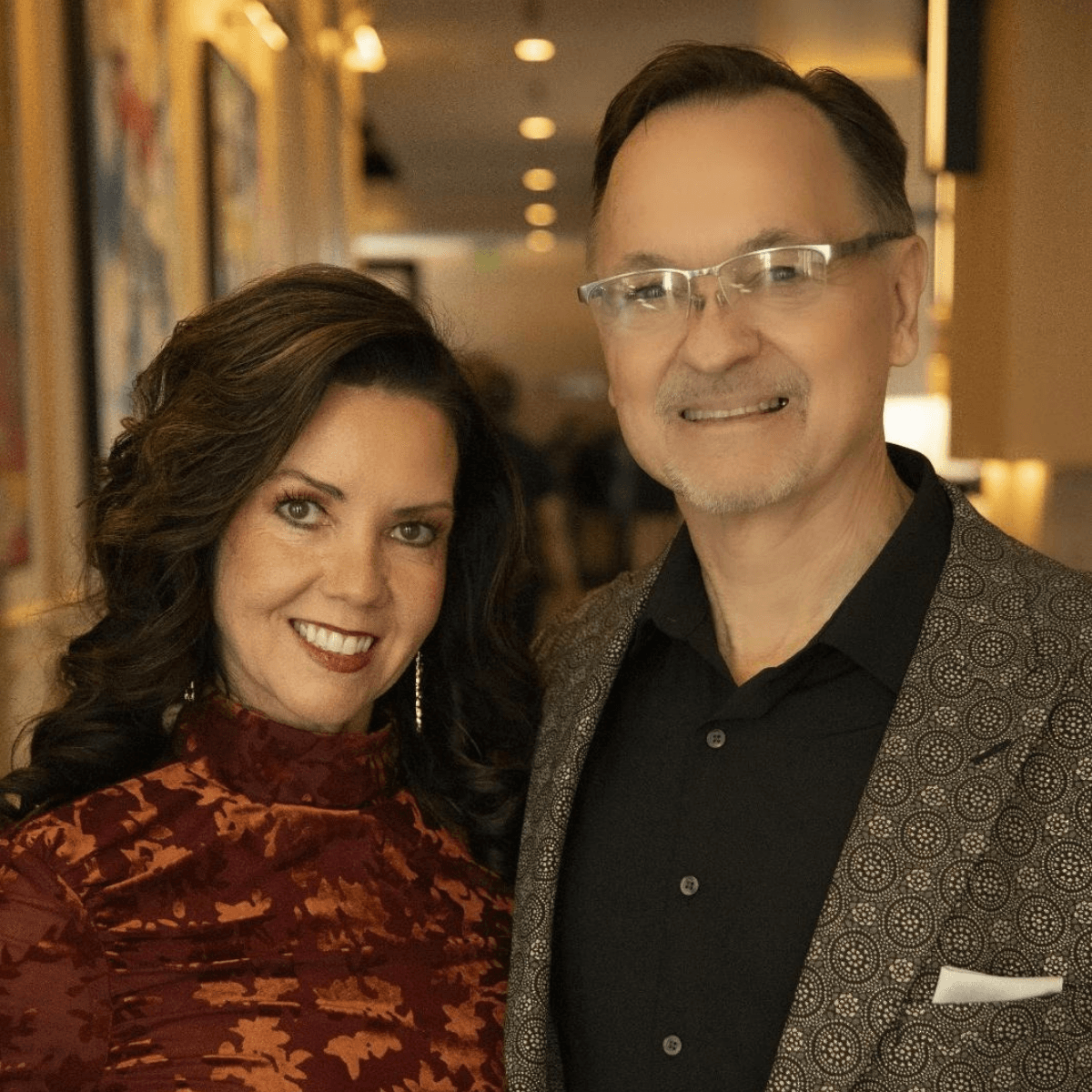Selecting the right keynote speaker can make or break the success of your event. A great keynote speaker not only sets the tone but also engages and inspires the audience, leaving a lasting impact. Whether you’re hosting a conference, corporate gathering, or special event, choosing a keynote guest speaker who aligns with your theme, audience, and objectives is essential.
In this guide, we’ll explore the key factors to consider when choosing a keynote speaker, from assessing their expertise and presentation style to evaluating their ability to connect with your attendees.
Table of Contents
Defining Your Event’s Objectives

When defining the objectives of your event, it’s important to take a holistic approach. First, think about your audience. Understanding their expectations and needs can be just as important as knowing the goals of the event. For instance, if your audience consists of industry professionals looking to gain knowledge, you’ll need a speaker with deep expertise and insights that align with the latest industry trends.
Next, consider the tone and energy of the event. Is it more formal or casual? Are you aiming for an informative, thought-provoking session, or something more inspirational?
Defining this can help narrow down speakers who match the intended atmosphere and energy level. A motivational speaker might fit a high-energy event meant to inspire action, while a technical expert might be better suited for a conference with educational objectives.
You should also consider any long-term goals associated with the event. Are you hoping to build lasting relationships, spark conversations, or even generate press coverage? Aligning your guest speaker’s message with these broader goals can amplify the impact of the event, ensuring that attendees walk away feeling fulfilled and connected to your objectives.
Once you’ve clearly defined your objectives, you can focus on finding a keynote speaker who fits your event’s themes and will deliver a message that supports your vision.
Understanding Your Audience’s Preferences

When selecting a keynote speaker, understanding your audience’s preferences goes beyond just considering demographics and interests. It’s about knowing what will capture their attention, inspire them, and leave a lasting impact.
Different audiences respond to different types of content and presentation styles. For example, a younger, tech-savvy crowd might be drawn to speakers who incorporate multimedia elements and engage with current trends, while more experienced professionals may prefer speakers who provide deep insights and practical takeaways based on expertise.
Think about the challenges or goals your audience may be facing. Are they looking for actionable advice to apply in their careers or personal lives, or are they seeking inspiration and motivation? If your event is industry-specific, you might want a speaker who is well-versed in the latest developments within that sector. This ensures the content is both relevant and timely, allowing the speaker to deliver value that the audience will appreciate.
Make sure to consider the guest speakers’ ability to connect emotionally with the audience. Engaging storytelling, humor, or a shared sense of purpose can often leave a deeper impact than purely factual presentations. By aligning the speaker’s style, tone, and expertise with what your audience values most, you enhance the likelihood that they will be engaged and leave the event feeling inspired and informed.
Researching Potential Keynote Speakers

When looking for the perfect keynote speaker for your event, it’s essential to go beyond basic qualifications and consider how each candidate aligns with your event’s overall theme and goals.
Start by identifying industry leaders, authors, influencers, or experts known for their work in the areas that resonate with your event objectives. Look for speakers with a proven track record of engaging audiences at similar events, and take the time to watch videos of their previous speeches to get a sense of their delivery, tone, and stage presence.
Consider using online resources like TEDx, YouTube, or professional speaking bureaus to find experienced speakers who are relevant to your industry. Some speaking agencies specialize in connecting event organizers with reputable keynote speakers, offering detailed profiles, video samples, and reviews from previous clients. This can save time and provide a more accurate sense of how well a speaker might perform at your event.
Reaching out to colleagues or tapping into your professional network can also offer valuable recommendations. Industry contacts who have attended or organized similar events may have firsthand experience with potential candidates and can share insights on their impact, reliability, and ability to connect with an audience.
Additionally, check social media platforms and online communities for discussions about speakers who have made a positive impression in recent events, helping you refine your list.
Aligning Speaker Expertise with Event Theme

Aligning a keynote speaker’s expertise with the theme of your event is essential for creating a cohesive experience that resonates with the audience. The right speaker will not only complement your event’s goals but also elevate the overall impact by offering relevant and insightful perspectives.
Begin by identifying the core objectives of your event. Are you aiming to inspire, educate, or spark innovation? Once you’ve defined these goals, examine potential speakers’ backgrounds and specializations.
Look for individuals who have extensive experience in the subject matter central to your event. A speaker with deep industry knowledge and practical experience will be able to connect the dots between their expertise and your event’s theme in a way that is meaningful to the audience.
It’s also important to consider how the speaker’s message aligns with the broader narrative you want to present. If your event focuses on emerging trends in technology, for example, a speaker who is well-versed in AI advancements would provide not just knowledge but also forward-thinking insights.
Additionally, their ability to adapt their content to various audience segments is crucial—ensuring that the message is understandable and engaging for everyone in attendance.
A well-aligned speaker will seamlessly integrate their own experiences and insights with your event’s purpose, enhancing the audience’s understanding and leaving a lasting impression. This harmony between the speaker’s expertise and the event’s theme fosters greater audience engagement, adds depth to the program, and reinforces key takeaways for attendees.
Evaluating Speaking Style and Delivery

When choosing a keynote speaker, evaluating their speaking style and delivery is crucial to ensuring they can captivate and engage your audience. A speaker’s presentation style affects how well they can convey their message and maintain audience interest, which is key to a successful event.
If you want to effectively evaluate a speaker, begin by watching videos of their previous presentations or attend one of their live events if possible. Focus on how they use tone, pacing, and body language. Are they dynamic, adjusting their tone to emphasize key points and keep the audience engaged?
Speakers who can seamlessly integrate humor, anecdotes, or real-life examples often establish a stronger connection with their audience. Additionally, their ability to convey complex information in an accessible way is important, particularly if your event involves technical or specialized content.
Consider how the speaker uses storytelling in their presentations. Engaging speakers often rely on stories to make abstract concepts relatable, thereby strengthening the overall impact of their message. A good keynote speaker doesn’t just present facts; they craft a narrative that aligns with the audience’s interests and the event’s themes.
Checking Availability and Logistics

After you’ve narrowed down your list of potential keynote speakers, confirming their availability and handling logistics is the next critical step. It’s important to reach out to the speakers or their representatives to check if they’re available on your event date. If your event is during a peak season, ensure this is done early to avoid any scheduling conflicts.
Once availability is confirmed, discussing the logistics helps set clear expectations and minimizes surprises. This conversation should cover travel arrangements, such as flights and accommodations, especially if the speaker is coming from out of town.
Address any specific needs like audiovisual equipment (microphones, screens, or projectors), presentation formats, or additional technical support they may require. Clarifying these details early on will ensure the speaker has everything they need to deliver a successful presentation.
In addition, don’t forget to confirm details such as the length of their presentation and any networking events they may be expected to attend. Some speakers may also require contracts, and it’s essential to review terms like payment, cancellation policies, and rider requests thoroughly.
By handling logistics in advance, both the speaker and your event team can focus on delivering a seamless and impactful experience for the audience.
Negotiating Fees and Contracts

When it comes to finalizing a keynote speaker, negotiating fees and contracts is a critical step to ensure that both parties are on the same page. It’s essential to have a clear discussion about the speaker’s fee, which may include more than just the speaking engagement itself.
Clarify whether their fee covers preparation time, event participation, and any promotional efforts for the event. Some speakers may have set fees, while others may be open to negotiation depending on the event’s scope, travel requirements, or whether they are particularly interested in the subject matter or audience.
In addition to fees, factor in expenses like travel, accommodation, and meals, especially if the event is in another city or country. Clarify who will cover these costs to avoid surprises later on. It’s a good idea to negotiate a payment structure, such as deposits, installments, or post-event payments, to manage cash flow.
Once the terms have been discussed, it’s crucial to put everything into a written contract. The contract should outline the fees, payment schedule, cancellation policies, intellectual property rights, and any specific requirements or responsibilities on both sides.
Having these details in writing helps prevent misunderstandings or disputes and ensures a smooth collaboration between you and the speaker. Seek legal advice if necessary to make sure all terms are fair and comprehensive.
Preparing Speaker for Success

To ensure a keynote speaker’s success at your event, it’s essential to go beyond basic logistical preparations and fully equip them with the context they need. One of the key steps is to share a detailed agenda of the event, which includes timings, session formats, and the speaker’s time slot.
Additionally, providing audience demographics is critical — knowing who they are speaking to (whether industry professionals, students, or community members) allows the speaker to customize their message and make it more relatable. Understanding the audience’s familiarity with the topic can help the speaker adjust their language and approach, ensuring they connect effectively.
A pre-event briefing or rehearsal can further ensure alignment on expectations. Use this opportunity to share any event themes, organizational goals, or feedback from previous events, which can help the speaker tailor their content to resonate with attendees. Also, inquire about their specific AV or stage requirements so that all technical aspects are addressed beforehand.
Lastly, provide the speaker with any relevant materials or insights into your event’s objectives or challenges, allowing them to weave those points into their narrative. By collaborating closely and ensuring they are fully informed, the speaker will feel confident and prepared, setting the stage for an impactful, engaging presentation that meets your event goals.
Ensuring Post-Event Follow-Up

After an event, ensuring a meaningful follow-up with your keynote speaker is crucial for building a lasting professional relationship. Begin by sending a personalized thank-you note, expressing your appreciation for their time and effort. It’s a small gesture that helps reinforce a positive connection and shows that their contribution was valued.
In addition to gratitude, take the opportunity to gather valuable feedback from the speaker regarding their overall experience. Ask for their insights on how the event went from their perspective. Did they feel the audience was engaged? Was the event organization smooth, and did everything run according to plan? This feedback can provide you with critical takeaways for improving future events.
Moreover, maintaining communication with your keynote speaker beyond the event fosters an ongoing professional relationship. You could discuss opportunities for future collaborations, whether through another speaking engagement or other mutually beneficial ventures.
Cultivating this relationship can lead to referrals or recommendations, as keynote speakers often network extensively within their industry. In turn, this could bring fresh opportunities for your organization or future events, expanding your professional network.
By combining gratitude, constructive feedback, and long-term relationship-building, you ensure that the speaker’s impact extends well beyond your event, leaving the door open for future opportunities.
Conclusion: Finding the Right Keynote Speaker to Inspire Success at Your Event
Choosing the right keynote speaker can make all the difference in creating a memorable and impactful event. For a speaker who will inspire, engage, and transform your audience, choose Buttimer Consulting. With expertise in speaking, coaching, and counseling, we’re here to help elevate your event to the next level.
Contact us at (404) 949-9500 or contact us to learn more about our transformative services and how we can tailor a speaking engagement that resonates with your audience. Let Buttimer Consulting be your trusted partner for a powerful and unforgettable experience.









